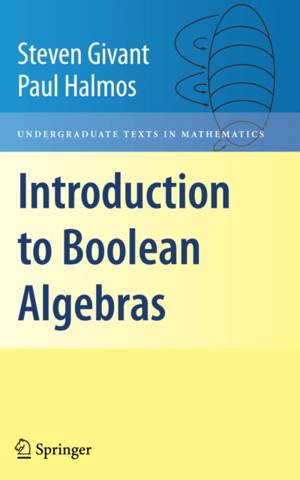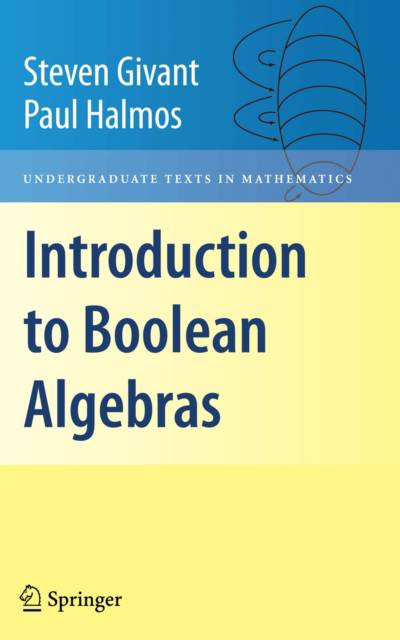
- Retrait gratuit dans votre magasin Club
- 7.000.000 titres dans notre catalogue
- Payer en toute sécurité
- Toujours un magasin près de chez vous
- Retrait gratuit dans votre magasin Club
- 7.000.0000 titres dans notre catalogue
- Payer en toute sécurité
- Toujours un magasin près de chez vous
Description
This book is an informal yet systematic presentation of lectures given by the author on Boolean algebras. The author's style is characteristically bold and fresh. He treats Boolean algebras, develops some intriguing ideas, and provides rare insights. Exercises are generously sprinkled through the text for course study. The second edition has been greatly expanded and rewritten, specific changes include:
* More detail explanations of the material in every section, making the text more accessible to undergraduates
* Three times as many exercises as well as a solutions manual
* A more careful explanation of the relationship between Boolean rings and Boolean algebras has been added;
* thirteen new chapters, including ones on topology and continuous functions and others on the extension theorem for homomorphisms, congruences and quotient algebras, lattice of ideals, and duality theory for products.
Spécifications
Parties prenantes
- Auteur(s) :
- Editeur:
Contenu
- Nombre de pages :
- 574
- Langue:
- Anglais
- Collection :
Caractéristiques
- EAN:
- 9780387402932
- Date de parution :
- 02-12-08
- Format:
- Livre relié
- Format numérique:
- Genaaid
- Dimensions :
- 157 mm x 236 mm
- Poids :
- 952 g

Les avis
Nous publions uniquement les avis qui respectent les conditions requises. Consultez nos conditions pour les avis.






